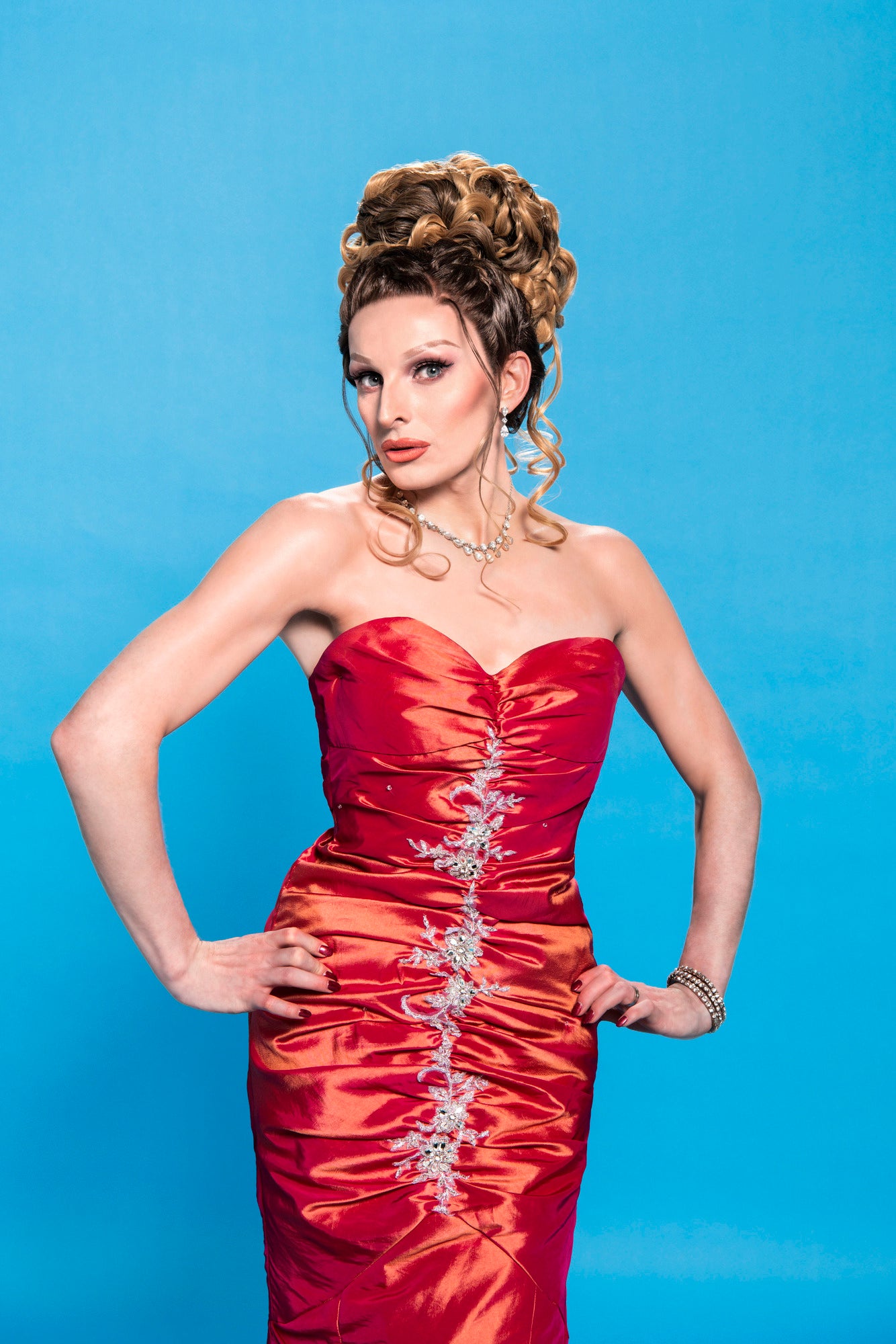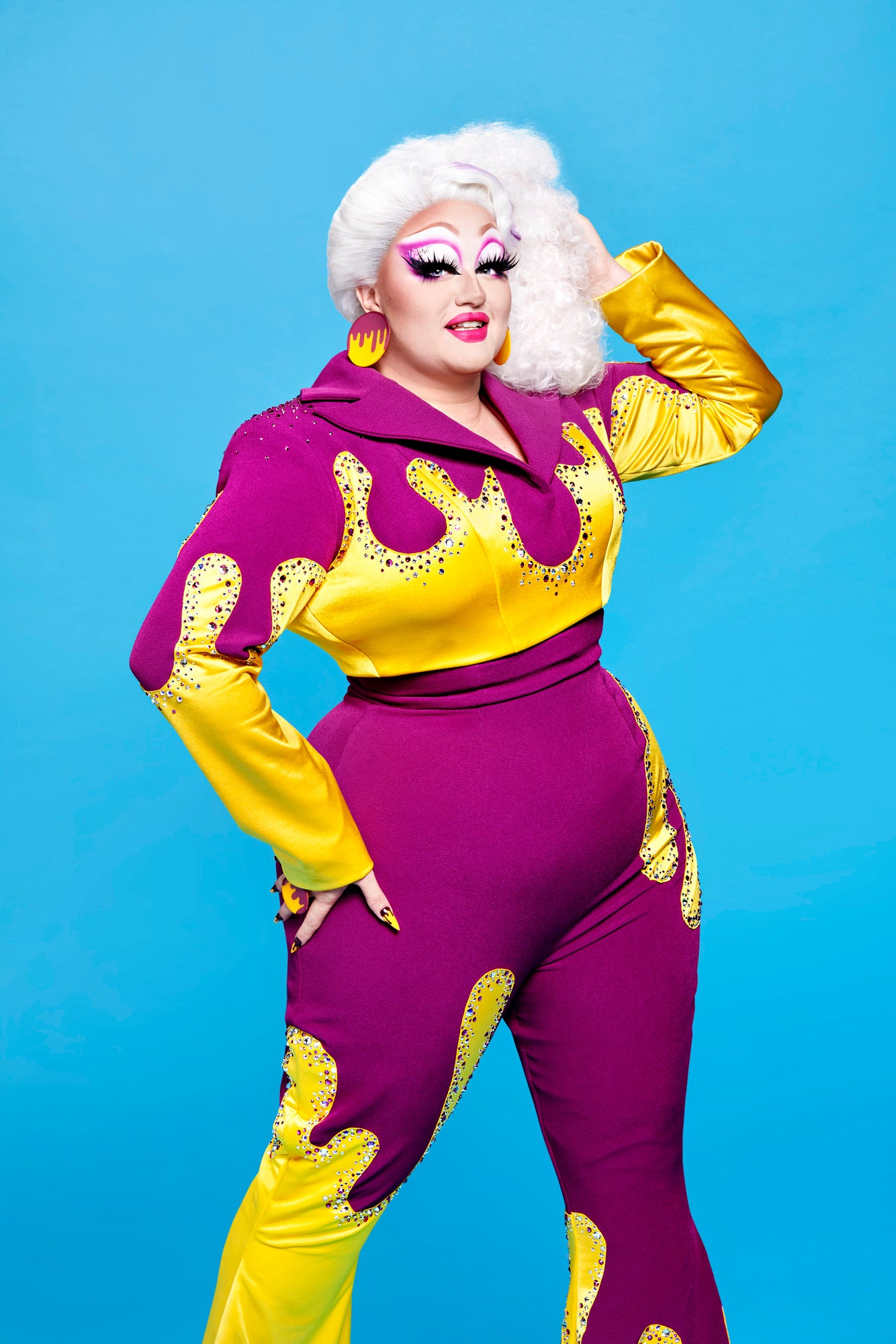‘It’s the Olympics of drag, innit’: The new Drag Race UK queens on turning looks and making history in a pandemic
As series three of the popular franchise returns, the competing future drag stars tell Isobel Lewis what’s changed for the new series and why performing is more important than ever


Your support helps us to tell the story
From reproductive rights to climate change to Big Tech, The Independent is on the ground when the story is developing. Whether it's investigating the financials of Elon Musk's pro-Trump PAC or producing our latest documentary, 'The A Word', which shines a light on the American women fighting for reproductive rights, we know how important it is to parse out the facts from the messaging.
At such a critical moment in US history, we need reporters on the ground. Your donation allows us to keep sending journalists to speak to both sides of the story.
The Independent is trusted by Americans across the entire political spectrum. And unlike many other quality news outlets, we choose not to lock Americans out of our reporting and analysis with paywalls. We believe quality journalism should be available to everyone, paid for by those who can afford it.
Your support makes all the difference.Bring together 12 drag queens and a pandemic and you’ve got what sounds like the set-up for a rather poor joke. But for the cast of RuPaul’s Drag Race UK series three, who spent months unable to perform live, this bizarre set of circumstances meant an opportunity to make a name for oneself on a global stage. “I think our cast should be so proud because we did it in such a hard time,” says Dagenham-born Ella Vaday. “I feel like we’re all bloody heroes and heroines.”
The stars of series three have big shoes to fill – seven-inch stilettos, to be precise. Series two of Drag Race UK in January 2021 was hailed as one of the greatest series in the franchise’s history, making stars of finalists such as Lawrence Chaney and Bimini Bon Boulash, both of whom are releasing books this autumn. The latest outing of the British spin-off, which arrives on BBC Three less than nine months after its predecessor, promises to bring all the incredible outfits, hilarious challenges and high-octane drama we’ve come to expect from the show. As east London queen Scarlett Harlett, one of the 12 competitors speaking to me over Zoom, says with a laugh: “Ru’s always saying it’s the Olympics of drag, innit, and so I fancy myself a little Mo Farah.”
When the first series of RuPaul’s Drag Race aired in the US back in 2009, hosted by “supermodel of the world” RuPaul Charles, no one could have predicted the global phenomenon it would become. What makes the format quite so successful (and work so well internationally) is the variety. Queens all have their own areas of expertise, sure, whether they’re dancers or stand-up comics, fashion designers or make-up artists. But to do well on Drag Race, you have to be an all-rounder, ready to do anything Ru throws at you – or at least give it a good go.
But series three brought with it a unique set of challenges. Where series two paused production mid-season when lockdown was first brought in (it resumed seven months later), series three was filmed entirely under Covid-19 restrictions. Preparing for the show and getting a full wardrobe of runway-ready outfits together is a big enough undertaking in a normal year, let alone at a time when, says London’s West End performer Ella, “every shop in the country apart from Sainsbury’s and Morrisons” was shut.
“It was a rollercoaster,” adds Lancashire’s Charity Kase, an “outlandish” queen known for her “gore and glamour”. “You had to get everything online, which obviously adds more money to your budget… That was the more difficult part, preparing for the season [and] creating stuff that I really wanted to present.”
But after months stuck inside, unable to perform, focusing on the show came as a welcome distraction. “It got me through and stopped me thinking about the pandemic, which was good,” says Burnley-born Elektra Fence. River Medway (named after the Kent waterway because “it’s full of s***, just like me”), agrees, saying that these limitations showed just what “bad b****es” the queens of series three are. “It’s an extra layer of stress that people who came before haven’t had [and] it made our experience unique. Preparing for the show is the hardest part. Once you’re there, you’re there.”
Not all the queens had the same experience, though. Among the new cast is Veronica Green, a musical theatre performer from Rochdale who originally competed on the last series of Drag Race UK, winning a coveted “Ru Peter badge” during the Rusical challenge. Veronica was still in the competition when production came to a halt, but was prevented from coming back after testing positive for Covid-19 two days before filming recommenced. While she was offered an open invitation by Ru to return, it was, understandably, an “utterly devastating” experience. “My whole world collapsed – everything crumbled around me,” she says. “I had no work, so no work means no money, no money means can’t pay my rent, can’t pay for costumes, can’t pay for Drag Race.”

Veronica describes the time between series as “probably the toughest period of my life”, eventually being accepted for universal credit while she applied for shop jobs, temp jobs, bar jobs – none of which were hiring. “I’m 36 now and I have never been so high in my life and low in my life [as] in this last year and a half,” she says. “It’s been the best and worst experience, but being part of this show is something that I have dreamt about and wanted for so long. I was not going to let my personal circumstances affect me in this competition. At the end of it, there is no prize money... but it’s the foundation for a career.”
The pandemic had a huge impact on Veronica , who resorted to borrowing money from her family so she could return to the show with a new wardrobe. “Everything about me, a lot of my convictions have completely changed because of this world event that is affecting so many people’s lives,” she says. At a time when live performers were struggling, Drag Race UK felt like a light at the end of the tunnel. Lessons were learnt: those of resilience, patience and an ability to “take more s*** than I thought I could”, says the Spanish queen Choriza May. “RuPaul always talks about the tenacity of the human spirit and it’s absolutely true that when you go into this competition, no matter where you place, you do learn that,” says Scarlett, who describes herself as “Danny Dyer in drag”. “Just to be on the show, it really puts you through your paces and helps you to know what kind of person you are.”

Watch Apple TV+ free for 7 days
New subscribers only. £8.99/mo. after free trial. Plan auto-renews until cancelled

Watch Apple TV+ free for 7 days
New subscribers only. £8.99/mo. after free trial. Plan auto-renews until cancelled
Among an already extraordinary series, there is one contestant who is particularly history-making. Victoria Scone (pronounced, in case you’re wondering, like “gone”) is a bio or AFAB (assigned female at birth) queen and is the first cisgender woman to compete on the Drag Race franchise. While working hard to diversify in recent seasons, Drag Race has been criticised in the past for platforming a limited group of cis, gay, male drag queens, and Victoria had felt that frustration too. “How could I, as a cisgender woman, complain that there was no other cisgender women on the show if I wasn’t applying myself?” she says.
Victoria, who is based in Cardiff, says that the response to her casting has been “overwhelmingly positive” – surprisingly so, given that some critics say cis women shouldn’t perform drag. “I know it seems that the negative is so horrific, but I can’t take it personally because they are misogynists,” she says defiantly. “If your only reason for not enjoying me when you’ve only seen a 90-second clip of me is that I’m not a real drag queen, I can’t take that personally. That’s just because you have a problem with a woman doing drag.”
And then there’s Choriza, a queen hailing from Valencia via Newcastle, who enters the werkroom on day one with the stellar line: “Don’t hate me ’cause I’m beautiful, hate me ’cause I’m an immigrant.” Despite her persona mixing together Spanish and British styles, Choriza has seen people ask why she isn’t competing on Drag Race Espańa instead, comments she reduces to pure “xenophobia”. “I’m a Spanish person and we’re in so many European cities, it just makes sense that one of us would do Drag Race UK as well,” she says. “We are lawyers, we are cooks, we are teachers, and we are also drag queens.”
With the show’s fans being, let’s just say, fairly intense, however, the responses can be difficult to handle once the show gets into swing. But the queens have been given some solid advice. “One of the first things Ru said to us in the werkroom was: ‘Do not read the comments, do not read the comments,’” recalls Birmingham’s Kitty Scott Claus, who performs in drag tribute act Gals Aloud. “At first when we got announced I was like, ‘No, I’m not gonna read them’… and then I’m like, ‘Let’s have a little see’. What I love now is replying to people because they don’t think you’re ever going to see it.”
While appearing on the show certainly requires a thick skin, the contestants are aware that a stint on Drag Race UK will change not only their lives but the lives of other performers around them. Choriza says that, having been given the opportunity they have, “it would be so selfish to just make it [about] ourselves”, while Victoria is done being the only cisgender woman performing at her gigs. “I need to make sure that other people are booked,” she states. “There’s no point in me being in a line-up of all cis white men at all, so I’m going to be using my platform to make sure I’m only participating in shows if they hire more diverse people as well.”
It’s also important, Choriza says, to make sure that viewers introduced to the art form via Drag Race go and watch performers out in the world, at venues, who aren’t just “Ru girls”. “We have to support our drag scenes, our drag brothers and sisters who have been working with us for so many years,” she says. “We need to remember they’re just as talented as we are, they just weren’t lucky to be on the show this year, but it doesn’t mean that local drag is less than Drag Race drag.” “We need to nurture local drag, because we were local drag,” interjects Victoria, with Choriza adding: “We were local drag a few days ago!”
While the show opens performers up to a wider audience, contestants need a strong work ethic to maintain their success. Vanity Milan, a south London queen “serving unapologetic Blackness”, says that she’s “working as hard [now] as I was working before I entered Drag Race... I think that’s something that drag queens, drag kings, go through on a regular basis. We are really working hard to make sure that we are visible and seen, without a TV show or not.”

But while contestants like Vanity have been performing in clubs for years, the competition is in many ways a leveller, with queens who’ve done drag for decades competing alongside teenagers. That’s not to say the queens don’t have their prejudices, however, with the year’s youngest contestants Krystal Versace and Anubis, both 19, admitting that they felt they had even more to prove than their fellow competitors. Younger queens are often branded as “Instagram” or “bedroom queens” – they look pretty online, but are inexperienced when it comes to live performance. But Kent-based Krystal, who’s been watching the series since she was 13, says this isn’t always the case.
“In the industry, it’s all about experience and you have to build that score up,” she says. “So when you come in hard with experience, but less of the years, I think people get intimidated by it. We’re both here to prove that age is just a number and we’re as good as all the other girls.” Anubis, who hails from Brighton, agrees. “Yes, I may be very young compared to a lot of the other queens that have come before me, but I think I’m just as talented. I’m just as valid and my drag is just as important. I want to prove that you can be any age and still be very good at drag.” She pauses. “Well, moderately good.”
But despite all the rivalries and drama that naturally arise during a drag competition, the queens of series three are united by their unique experience. Charity describes Drag Race UK as “a project of love and joy”, where Covid-19 restrictions have strengthened the bonds among their support network. “I think one of the biggest uplifting parts of it is the community that came together to help other queens get their looks together, get their hair sorted,” Veronica says. “The community really came through... I had to pull in favours because I had nothing and when you’ve got nothing, you’ve got nothing to lose.”
“So it’s everything to win,” says Scarlett.
“Exactly,” Veronica replies, beaming.
RuPaul’s Drag Race UK begins Thursday 23 September at 7pm on BBC iPlayer



Join our commenting forum
Join thought-provoking conversations, follow other Independent readers and see their replies
Comments